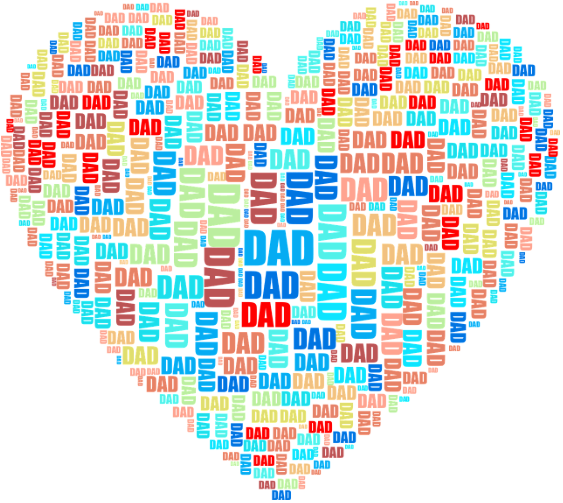
Heart image for father. (image: courtesy of Gordon Johnson)
Papa I would have loved to wait longer, regain more strength and composure to write to you, your children, friends, acquaintances, and many more. The urge to speak to you and talk about you possesses me and forces me to do it, right now. It’s like a call to arms, a duty I must fulfill, urgently. So immense is my pride as I jot these lines in your honor!
My admiration for you has never thinned or reduced in any way, I always wondered if I could achieve what your first son had to achieve. Your expectations of me were high and you “worked me” ceaselessly in any way you could so that I could be “that man”.
In this article I pay tribute to my father Aboubakar Traoré who passed, at age 73 at Bobo Dioulasso on 17 May in Burkina. He was well loved in his community, highly respected, admired by his colleagues and adored by his family.
Aboubakar Traoré started his professional career with the Ministry of Agriculture of Upper Volta (now Burkina Faso) in 1977. He started as the human resource management director of a rice production unit. He later worked as an accountant in the agriculture office of another city in Burkina. He spent most of his career at that post and later joined the German NGO GIZ as a senior agricultural officer. That position gave him the opportunity to work in several areas where irrigation was used for farming grains and vegetables. He was referred to as the “bulldozer” by his colleagues at GIZ because whenever there was a tedious assignment for farmers in an area, he would be sent there to solve the problem by working appropriately with the rural populations to overcome the challenges they were facing.
Simultaneously, Traoré worked on his own farm where he grew a panoply of crops, fruit, vegetables and also raised cattle. He lived in Houndé (mid Burkina, between the two main cities of the country) most of his life. This is where he is most well known and loved. People who knew him often said that “when it comes to maize production, Abou (as he was commonly called) is “number one”.
He was also described by many as “the man with white manners, he is complicated”. He earned that reputation because he was a perfectionist and was hard on himself, his loved ones – children, siblings and friends. He favoured the power of argumentation over the use of power.
Most of all, Aboubakar Traoré was an outstanding father. He was dedicated to the education of his children, and I had the privilege of his close attention. He opened my eyes to scholarship, reading, writing, oration. His library was a sanctuary for us both. I remember when at age 10 he said to me, “I would like you to give public lectures in about five years to come”. He promised to teach me how to get there.
He also ignited, determined, influenced and forged my socio-political conviction. He was a radical revolutionary. His leftist convictions landed him in trouble more than once. He encouraged me to read Marx’s Das Kapital when I was 12 years old and that sowed the seed. That was followed by the Communist Manifesto, then by Rousseau’s Social Contract and then I went on to the Russian classics Solzhenitsyn and Dostoevsky and many more. Through that exercise I read, in French, many books that I am now teaching to my final year university students. Dostoevsky’s Crime and Punishment and Notes from Underground are just two of them.
He designed my pedagogy, also, when he advised me to spend extra time working with students who needed more help. That made me embrace, wholeheartedly, the learner- centred approach that melded with the passion for teaching that happened to have germinated at some point.
He also influenced my attitude to health as he would say in a militaristic style “you are thickening boy, are you not a male? you are too young to have this or that health condition….”, some of which befell him in his advanced years. I regret not being there at his departure. While battling up to the last minute to be able to see me, he was too weak to speak to me.
My father was embraced the traditions of his culture. He was proudly and unapologetically polygamist. It was his destiny to charm and sweep two ladies off their feet. He fathered eight children. His wives loved him and miss him. His children all loved him and miss him. He was never physically violent, arguing and speaking with strength, harshness, yes, but flogging, knocking, no. Yet, he instilled in me the fear of failure, and failing, something I’m still dragging to this day.
His blood runs strongly in my veins. I inherited his love for hard work, his sense of duty, loyalty and honesty. I am grateful to have inherited such a legacy. I believe that I made him proud and I will, in sha Allah, continue to do so.
Your son Moussa
